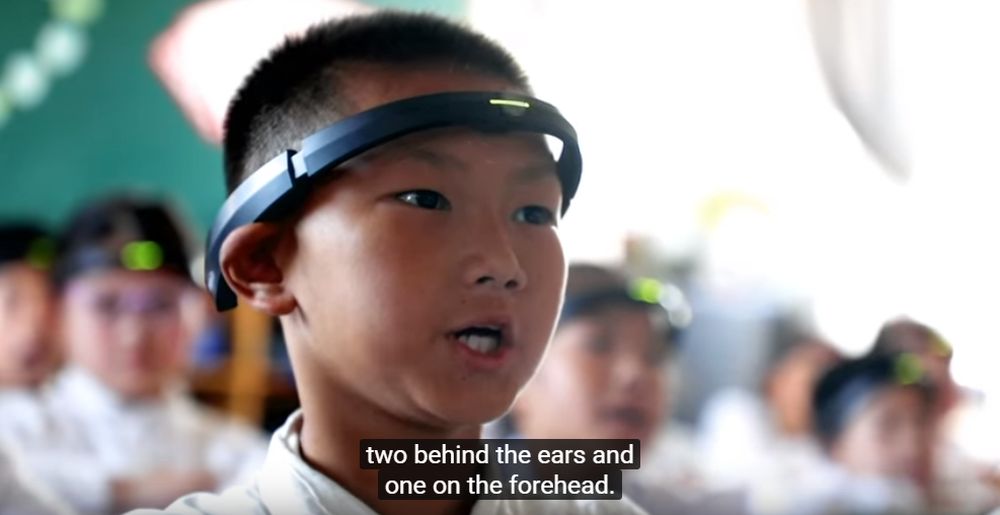What if we strap electrodes to kids’ heads to monitor how focused they are, and share the data for all students in the class with all parents? Is this an Orwellian nightmare, or your deepest wish for classroom management heaven?
This Wall Street Journal story looks at a program to use EEG (electroencephalogram) technology with students at a primary school near Shanghai, China.
The idea is to help students focus better, and many of the students and parents interviewed in the piece seemed fine with it.
The questions about effectiveness of the technology, the use of data, the importance of intrinsic and extrinsic tools for motivation, etc., are endless.
At core, though, perhaps the point-of-departure question is this: when it is important that you pay attention, would you want one of these on your head?
Discuss.
That is, discuss, and make sure not to lose focus.
![]()
You can find many more interesting free videos, stories, and tools to try in the November issue of the Next Vista for Learning newsletter.

4 Comments
Mark Loundy · November 8, 2019 at 9:22 am
This would be useful in a limited laboratory situation to study student attention patterns, but in general use, I find it horrifying. Even the image evokes a terrible scenario of forced behavior. We are all different. I fear that this would be used to force a students into a uniform regimen of “attention.” It harkens back to the old model of schools as factories of identical workers. This gives me shivers.
David Tchozewski · November 9, 2019 at 5:03 pm
Interesting, but goes too far, in my opinion. So much effort is being devoted to turn students into the perfect “learning machine”. We are human, not robots. Not a fan of this project.
Sandra Wozniak · November 11, 2019 at 5:55 am
As I prepare my next session on cultivating curiosity, I realize that genius (ex. Leonardo daVinci) only develops when minds are allowed to wander and wonder.
Donovan Bailey · December 9, 2019 at 2:38 pm
If learning is meaning making, then students need agency over not only how effectively they learn but to some extent what they learn. In this context this may counter intuitively mean the freedom to choose not to focus on certain content. If students do not have this freedom we are in brainwashing territory. In my opinion the educators roll should lean more towards facilitator of learning, and far away from master manipulator which is where this kind of technology appears to take us.